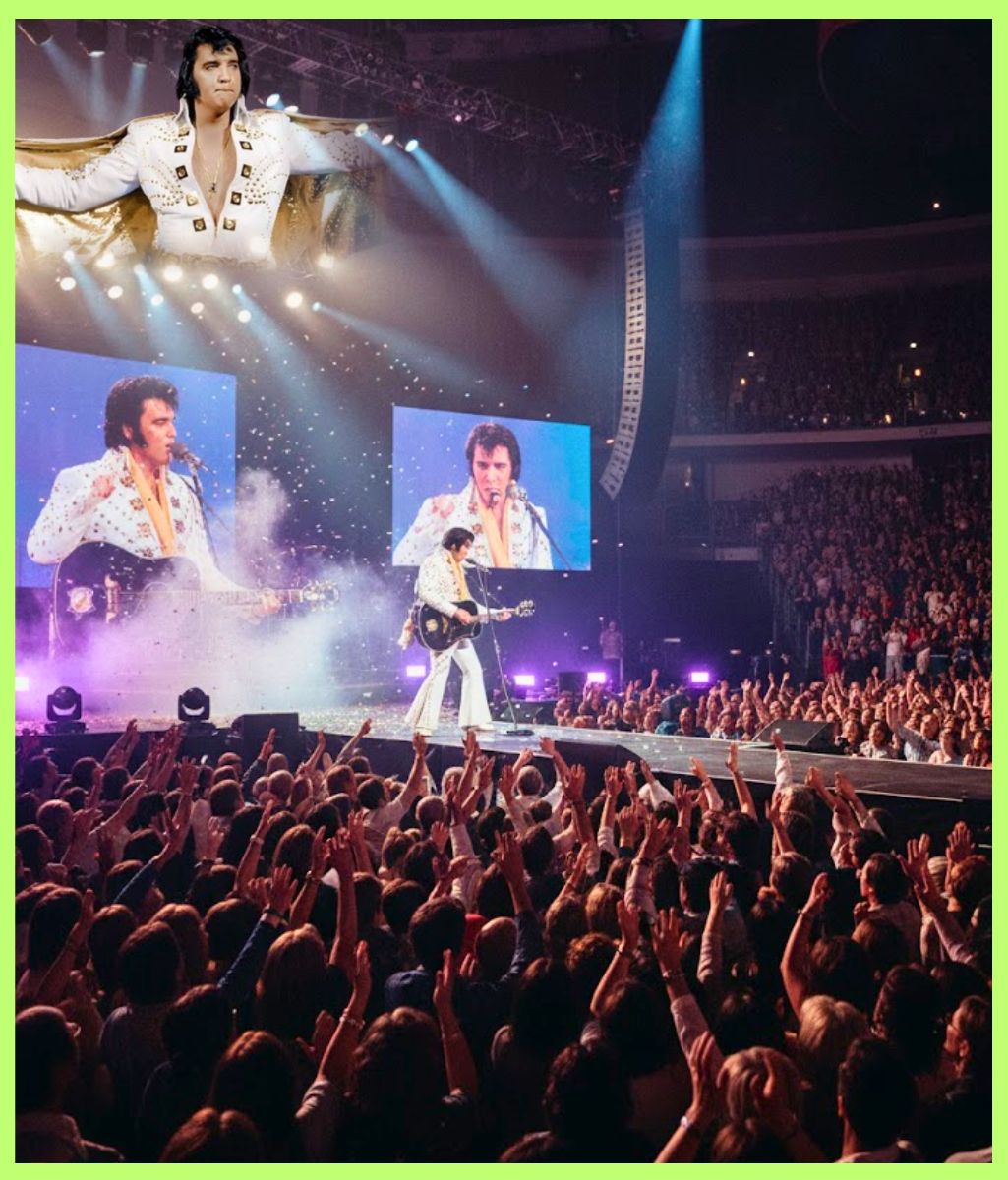
HOW HE BECAME “THE KING”: Just Now — The Untold Truth Behind Elvis Presley’s Legendary Title
They called him “The King of Rock ’n’ Roll,” but few truly understand how that crown was earned. The story of Elvis Presley isn’t just about fame, fortune, or fame’s fragile glitter — it’s about the rise of a quiet boy from Mississippi who, through faith, fire, and sound, changed the very heartbeat of the world.
Long before the spotlight, long before the screaming crowds and flashing cameras, there was just Elvis Aaron Presley — a shy teenager from Tupelo, Mississippi, raised on gospel, rhythm, and hope. His world was small then: Sunday hymns in the Assembly of God Church, his mother’s voice singing softly beside him, and a battered, borrowed guitar that became his constant companion.
In those early years, no one could have guessed what was coming. The young Elvis was polite, soft-spoken, and deeply rooted in his faith. But inside, there was a spark — a rhythm waiting to be unleashed. He was absorbing everything around him: country music from the radio, blues from Beale Street, and the gospel harmonies that would one day pour from his soul in songs like “How Great Thou Art.”
Then came the moment that changed everything. It was 1954, inside the now-legendary Sun Studio in Memphis, Tennessee. Elvis stepped up to the microphone and recorded “That’s All Right.” The sound was raw, alive, and completely unlike anything America had ever heard. It was the fusion of heart and hunger — part country, part blues, and all rebellion. Radio DJs didn’t know what to call it, so they gave it a new name: rock ’n’ roll.
By 1956, the world could no longer look away. When Elvis appeared on The Ed Sullivan Show, television screens across the nation shook — literally and figuratively. With one swivel of his hips and one note of that honeyed drawl, he broke the rules of entertainment and rewrote them forever. To some, he was dangerous. To others, divine. But to everyone, he was unforgettable.
What made Elvis different wasn’t just his voice or his looks — it was the emotion behind every note. Whether he sang “Heartbreak Hotel,” “Can’t Help Falling in Love,” “Love Me Tender,” or “Suspicious Minds,” he made listeners feel something bigger than the song itself. He didn’t just perform; he confessed. His music carried both joy and pain, rebellion and redemption.
And then there was the generosity — the quiet side of Elvis that the headlines rarely showed. He gave away cars, homes, jewelry, and money to friends and strangers alike. For him, success was never just about the stage. It was about sharing, about using his platform to lift others.
As the years went on, the legend only grew. Even as fame became a burden and health began to falter, the heart of Elvis never dimmed. In his later performances — like “If I Can Dream” and “My Way” — you can hear a man wrestling with destiny, still giving everything he had until the final note.
When he passed in August 1977, the world mourned — not just the loss of a star, but the end of an era. Yet decades later, his voice still echoes through radios, jukeboxes, and hearts across generations.
So how did Elvis Presley become “The King”?
He earned it — not through power or privilege, but through passion. Through every stage he lit, every song he gave, every life he touched.
Because kings aren’t born — they rise.
And Elvis Presley, the shy boy from Tupelo with a borrowed guitar, rose higher than anyone before or since.
